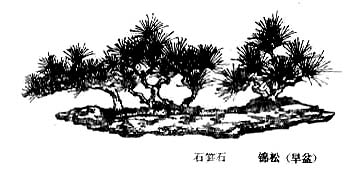中
庸
Zhongyong 
 – The Doctrine of the Mean
– The Doctrine of the Mean
Confucius' grandson comments about the Way and human nature. Tr. Legge (en)
Zhongyong I. 4.
While there are no stirrings of pleasure, anger, sorrow, or joy, the mind may be said to be in the state of EQUILIBRIUM. When those feelings have been stirred, and they act in their due degree, there ensues what may be called the state of HARMONY. This EQUILIBRIUM is the great root from which grow all the human actings in the world, and this HARMONY is the universal path which they all should pursue.
Legge I.4.
喜欢、愤怒、悲哀、快乐几种感情还没有激发的时候叫做“中”;发作了,都合乎义理礼节,叫做“和”。中天天下事物共同的自然本性,和是天下四处通达的道路。
白话翻译
Quand ces sentiments ont été remués, et qu'ils agissent à leurs juste niveau, là s'ensuit ce qui peut s'appeler l'état d'HARMONIE.
Cet ÉQUILIBRE est la grande racine à partir duquelle croissent tous les actes humains dans le monde, et cette HARMONIE est le chemin universel qu'ils devraient tous poursuivre.

The Doctrine of the Mean – Zhongyong I. 4. – Chinese on/off – Français/English
Alias Zhong Yong, Chung Yung, Tchong Yong, The Unwobbling Pivot (Pound), La Régulation à usage ordinaire (Jullien).
The Book of Odes, The Analects, Great Learning, Doctrine of the Mean, Three-characters book, The Book of Changes, The Way and its Power, 300 Tang Poems, The Art of War, Thirty-Six Strategies
Welcome, help, notes, introduction, table.
Index – Contact – Top
